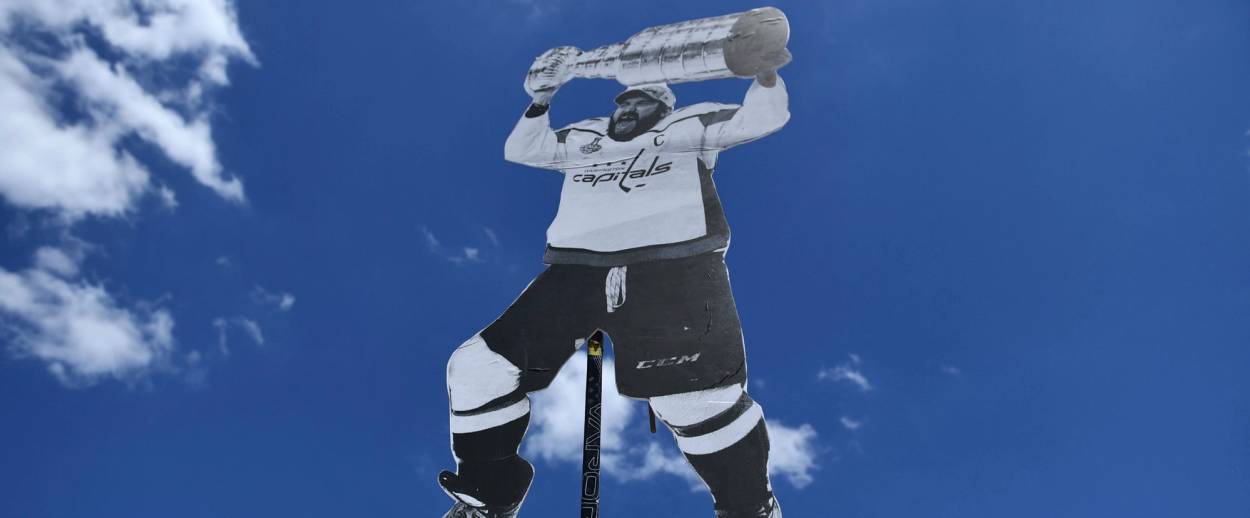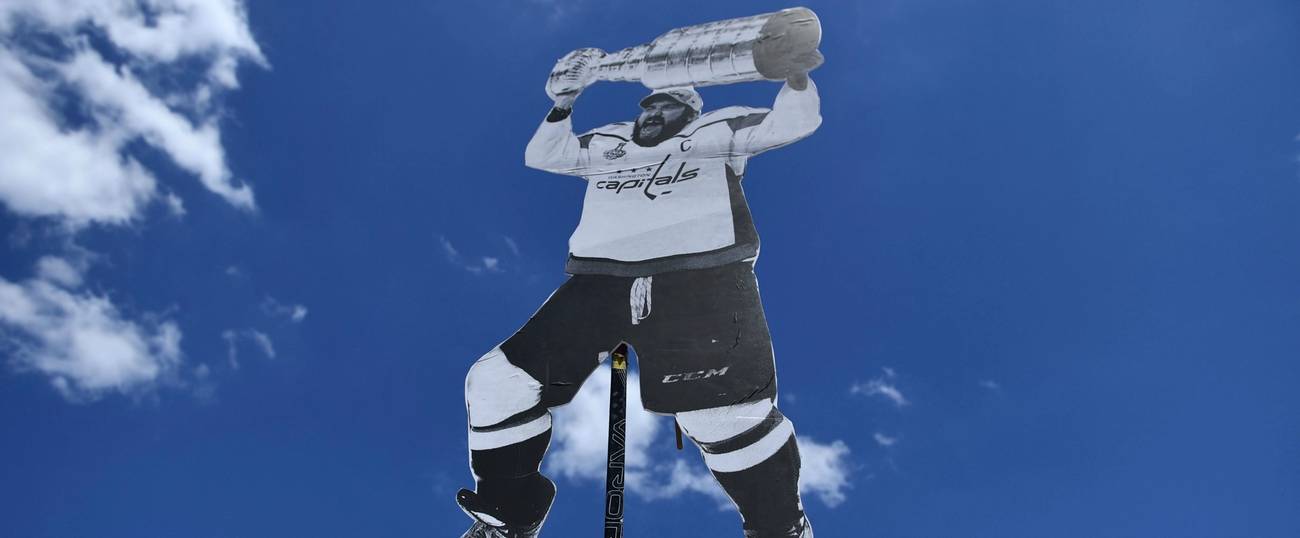There are feelings that can be felt once and only once over the course of an entire lifetime. The happiness produced through ice cream or sex or Purim or Con Air just isn’t the same as the happiness of getting married or having children or finishing a marathon for the first time. Pay attention, these moments tell you: You have reached an opportunity for self-observation that will absolutely never come again. Don’t pay attention to anything, they also say: Soak in the psychic tide before it recedes forever.
Fans of the Washington Capitals experienced one of these moments on June 7th, as time expired on the franchise’s first Stanley Cup victory. Here’s what it was like for me, watching at a house on Fire Island, far away from the happy crowds spilling into 7th St NW in DC, and probably miles from anyone who particularly cared about the game or the team. I stood a couple of feet from the TV, paralyzed in wonder, mind and being thrust into a blissed-out blankness. As the Vegas Golden Knights left the ice, as Alex Ovechkin lifted the Cup and slayed every remaining demon, I wondered how many times I’d dreamed of this exact scene over the years, and how long it would take for this to seem entirely real. I mumbled a shehechiyanu under my breath. Plans to get blitzed until dawn with the rest of my vacation-mates evaporated. Drunkenness is cheaply earned and drearily replicable. I was feeling a much rarer thing, something whose existence I didn’t want to jeopardize in any way, not even a little: Bliss without complication or doubt, happiness severed from all embarrassment, guilt, or fear; a joy so blinding that it engulfed any temptation to look back on anything that came before it, or to reflect on how or why it had come to exist in the first place.
Maybe it’s absurd to talk about a sporting event like this, but take a look at the pictures from Tuesday’s Stanley Cup victory parade in Washington—the occasion for the largest single-day ridership of the Washington Metro system since the 2016 Women’s March—and tell me it’s really that absurd. Standing in front of the Natural History Museum on Constitution Avenue, perched between a high school friend who had attended multiple triple-overtime home playoff losses and a younger brother who had heroically stuck with this dumb team despite personally witnessing last year’s game seven disaster against the Penguins, I watched a history of both the personal and sporting variety unfold, culminating in the telos that had changed the story’s entire nature and meaning. At the very front of the parade walked William Stilwell, aka Goat, and Sam Wolk, aka The Horn Guy; to put icons of long-suffering Caps fandom at the start of the procession emphasized that the real accomplishment had been all of ours, by virtue of sticking around this long. Next were Joe Beninati and Craig Laughlin, the Caps’ beloved TV team—did Joe B dare to think this day would actually come, or that he would ever be addressing hundreds of thousands of people on the National Mall? Peter Bondra, a legend of an earlier and even more frustrating era of Capitals hockey, rode a wagon drawn by a team of Clydesdales; Rod Langway drank a Bud Light in the back of a convertible. Next were the 1974 Club, hearty souls who have had season tickets for all 42 of the Capitals seasons, 41 of which have ended the only way we’ve ever known them to end.
Last was a double-decker bus bearing Ovechkin, assistant captain Niklas Backstrom, and the Cup Itself. There has been something heroic about Ovi’s celebrations over the past week, which have involved keg stands out of the Stanley Cup, repeated drunken signings of “We Are The Champions,” and a swim around a fountain in Georgetown that is now even more legendary than his laser beam in the second period of the Cup final’s deciding game five win. For the past week, he’s been Achilles dragging the body of Hector around the walls of Troy, or King David dancing naked before the Ark, the embodiment of emotions too enormous for a regular human to contain. He is more pumped about this than anyone has ever been about anything. Yet in a boozy week, my favorite post-Cup Ovechkin moment is a simple Sunday afternoon photo taken with a random middle aged couple near a sushi place at Tyson’s Corner mall, a reminder that we can in fact comprehend Ovi’s happiness because it’s inevitably so much like our own.
After the parade, crowds of red-clad fans made their way to the Mall, where our heroes gathered on a stage under a banner reading WORLD CHAMPIONS. Heavenly islands of cloud drifted through a sky of numinous blue, against which towered the Capitol dome. Whenever the Cup was raised, it gleamed like an object that had arrived on earth by meteor.
The entire endeavor of sports fandom is an invitation to constantly think about why we assign alpine scales of meaning to things that are inevitably trivial and absurd and ridiculously outside of our control. Here, spread out between the museums and monuments, among the largest gathering of Capitals fans that has ever occurred or will ever occur, was one compelling answer: Sports had finally given us all a happiness equal to the scale of this occasion. The people in front of us had made us feel things we had never felt before and would therefore never feel again. Theirs was a Kabbalistic accomplishment: They had recovered the sacred fragments—however small, in the swing of things; this is still, like, hockey we’re talking about—and imposed some tiny measure of coherence on the shattered vessel of this world. “We are not going to be fucking suck this year!” Ovi bellowed to the crowd, speaking in a prophetic past-tense, closing the circle that began when he first uttered those now-immortal words during training camp some nine months ago, when few would have mistaken these Capitals for the eventual Stanley Cup champion. On a cool June day, a soft sun pouring into the marble and green of the National Mall, it felt like a momentary preview of redemption.

